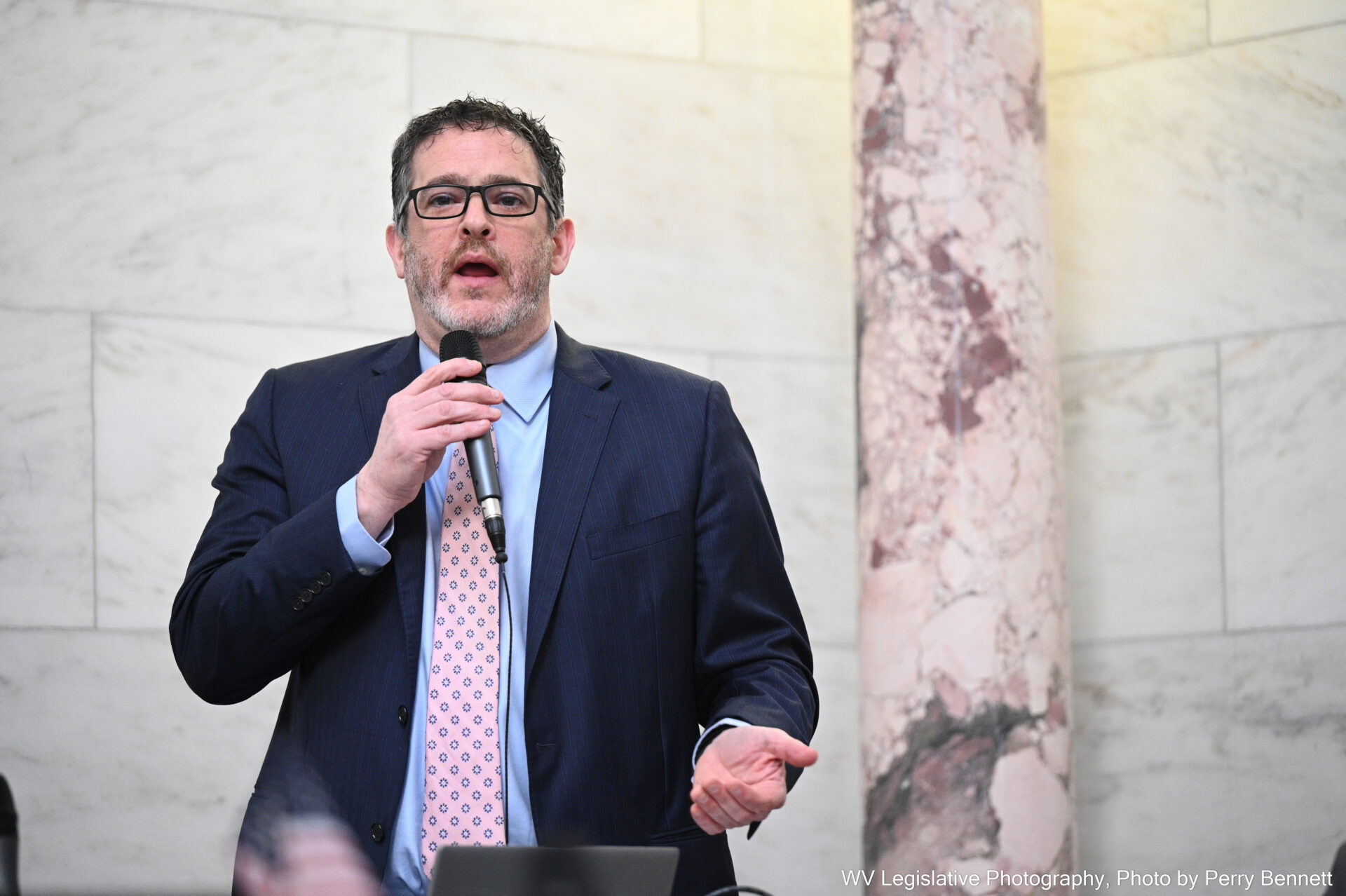While Republican candidates dominate the media leading up to next week’s primary election, there are also Democrats up and down the ballot running for state offices. Their campaign strategy, however, takes a different path.
Del. Mike Pushkin, D-Kanawha, chair of the West Virginia Democratic Party, spoke with Government Reporter Randy Yohe on the efforts to rebuild the party and restore Democrats to state offices.
The transcript below has been lightly edited for clarity.
Yohe: What has been the Democrats’ overall philosophy for running candidates in the primary election?
Pushkin: During the candidate recruitment process, obviously, we’re looking for community leaders, people who run on a record, and people who are qualified to do the job that they’re seeking. We’re recruiting people who are true public servants, rather than just people seeking political gain.
Yohe: In the state constitutional or Board of Public Works offices, there are single Democratic candidates, except for attorney general. There’s no candidate for state treasurer in the primary. So what’s the game plan for these particular posts?
Pushkin: It’s very difficult right now for Democrats in West Virginia. We feel that the people deserve choices. And we were able to field candidates in all but one of the Board of Public Works races. The thing is candidates on our side are far more qualified to do the job.
Yohe: What kind of work on the ground has gone into finding and running the candidates for all the open state Senate and House of Delegates offices?
Pushkin: It started with helping to rebuild the county Democratic Executive Committees, getting people on the ground in different parts of the state, and that’s a work in progress. We’ve got a whole lot of work ahead of us to rebuild this party, and to start winning back seats up and down the ballot. It is what we feel would result in a better government for the people of West Virginia. What they have now is a supermajority that’s the least transparent government we’ve ever seen and the least accountable government we’ve seen in a long time. It doesn’t really seem to respond to the will of the people.
Yohe: Kanawha County Commissioner Ben Salango was the 2020 Democratic candidate for governor running against Jim Justice. In 2024, it’s Huntington Mayor Steve Williams. However, Salango did consider running again. Can you talk about the agreement between the two men and the party and how that came about?
Pushkin: I can’t comment on private conversations between Commissioner Salango and Mayor Williams, but I do feel we have a great candidate for governor [in] Mayor Steve Williams. He’s the only three term mayor of Huntington and he was elected to three terms because he’s done a great job. People forget when he took over as mayor, Huntington was in pretty bad shape. He has really turned that city around and he’s got a great story to tell.
Recently, Mayor Williams has called on our current governor, Gov. [Jim] Justice, and the Republican legislature to allow the people to vote on a constitutional amendment to restore reproductive freedom in West Virginia. In state after state when the people get to choose, they have chosen to restore this right that has been on the books for over 50 years. I think it’s important to let the people decide and put freedom on the ballot this year. So we stand with Mayor Williams calling for this measure to be put on the ballot.
Yohe: How robust will Williams’ campaigning be leading up to the general election in November?
Pushkin: He’s going to run a great campaign. He has the benefit of not having a primary. On the Republican side, they’ve had a bitterly fought primary. And we have been inundated with commercials that really do not address the issues at all. While they’re fighting over who can run the most shocking ads and bickering over social issues that really don’t have a whole lot to do with the day to day lives of West Virginians, Mayor Williams is actually talking about real issues. He’s going to continue to discuss real issues that affect the day to day lives of West Virginians up until November.
Yohe: There’s the theory that intense primary campaign mudslinging by the Republican gubernatorial candidates might drive voters over to the Democratic candidate come general election time. Your thoughts on that theory?
Pushkin: We watch these ads from the Republicans running for governor. Is there any real difference between any of the top four candidates? I mean, their commercials are really just interchangeable. It’s all about the same things. And all of that is really meaningless when it comes down to the day to day lives in West Virginia. Mayor Williams is talking about real issues, he’s running a real campaign based on real issues that affect the lives of West Virginians. What he’s talking about is actually meaningful, instead of this ridiculous cultural war stuff that we see on the other side. I don’t really see any difference between the major Republican candidates, but we’re providing a real difference and a real choice for voters and Mayor Williams this fall.
Yohe: Anything else you want to tell me about this subject I didn’t ask?
Pushkin: We know what we’re up against here in West Virginia. It’s been rough for Democrats in the last couple of cycles, but we’re going to continue to keep fighting. We feel that people deserve choices. I trust that people are going to make the right choices in many of these races. We’re going to keep working and continue to talk about real issues, while the Republicans try to out-Trump each other.
